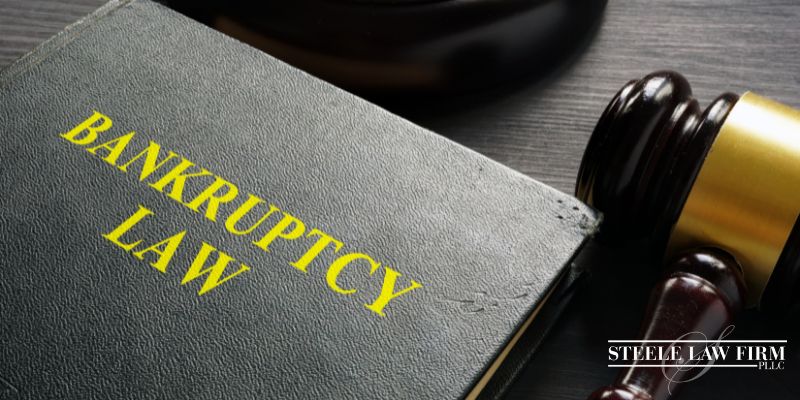Bankruptcy is a legal process that allows an individual or business to eliminate or restructure their debts. This is done under the supervision of the bankruptcy court. A bankruptcy attorney or lawyer can help guide you through the bankruptcy filing process. This includes determining which type of bankruptcy is right for your situation, filling out the necessary paperwork, and representing you in court.
If you live in the River Oaks area, and are considering filing for bankruptcy, it can be beneficial to seek the services of a River Oaks bankruptcy attorney. They are familiar with the bankruptcy court in the area. Additionally, a debt lawyer may be able to help you negotiate with creditors. This can establish a payment plan for taxes or loan debt. They can also help you examine other alternatives to bankruptcy.
A bankruptcy and debt lawyer from Steele Law Firm can help you understand your options. We can help you make an informed decision about how to proceed with your bankruptcy case. Our firm can also provide guidance on how to manage your finances in the future to avoid similar situations.

Chapter 7 and Chapter 13 are the two most common types of bankruptcy. These are filed by individuals and small businesses in the United States. Understanding the differences between the two is important when considering whether bankruptcy is the right option for you.
Chapter 7 bankruptcy is sometimes called "liquidation" bankruptcy. In a Chapter 7 case, a bankruptcy trustee is appointed to gather and sell the debtor's nonexempt assets to repay creditors. However, many types of assets are exempt from liquidation, meaning that they cannot be sold to pay off debts. Once the nonexempt assets have been liquidated, any remaining eligible debts are discharged. The debtor is no longer legally obligated to pay them. Chapter 7 bankruptcy is typically a good option for individuals who have limited assets and a lot of unsecured debt. This includes credit card debt and medical bills.
Chapter 13 bankruptcy is sometimes known as "reorganization" bankruptcy. In a Chapter 13 case, the debtor keeps their property. However, they agree to repay all or a portion of their debts over a period of three to five years. The repayment plan is based on the debtor's income, expenses, and the amount of debt owed. At the end of the repayment period, any remaining eligible debts are discharged. Chapter 13 bankruptcy is typically a good option for individuals who have a steady income and want to keep their assets, such as their home or car.
The main differences between Chapter 7 and Chapter 13 bankruptcy are:
It is important to note that bankruptcy can have long-term consequences. It is a decision that should be considered carefully.
Determining whether bankruptcy is right for you depends on your individual circumstances. Bankruptcy can be a helpful option for those who are struggling with overwhelming debt. However, it is not the right choice for everyone. Here are some factors to consider when deciding whether to file for bankruptcy:
Overall, determining whether bankruptcy is right for you will depend on your individual circumstances. Consulting with a bankruptcy attorney can help you understand the situation and make the most informed decision possible.
If you file for bankruptcy, you will need to attend a meeting with your creditors. This is a brief hearing where the bankruptcy trustee and your creditors can ask you questions about your finances. In some cases, you may also need to attend a court hearing.
Our bankruptcy attorney can prepare you for these proceedings. Our firm can also represent you in court if necessary. Here are some things you need to know before you go to bankruptcy court:
If you have any questions or concerns about going to bankruptcy court, our bankruptcy attorney can provide guidance and support throughout the process.
A: No, you will not necessarily lose all your assets if you file for bankruptcy. Many assets are exempt from liquidation in Chapter 7 bankruptcy. In Chapter 13 bankruptcy, you can keep your assets and create a repayment plan based on your income. Consult with a bankruptcy attorney to determine which assets may be at risk of seizure.
A: Yes, filing for bankruptcy will stop creditor harassment and collection actions, such as wage garnishment and foreclosure. When you file for bankruptcy, an automatic stay goes into effect. This prohibits creditors from taking any further action to collect the debt. This means that they must stop all collection activities, including phone calls, letters, and legal actions.
A: It is possible to discharge certain types of tax debt through bankruptcy. However, it depends on the specific circumstances of your case. In general, tax debt can be discharged in bankruptcy if it meets the following criteria:
A: Yes, it is possible to file for bankruptcy more than once. However, there are restrictions on how often you can file and which type of bankruptcy you can file. For example, if you previously filed for Chapter 7 bankruptcy, and received a discharge, you must wait eight years before you can file for Chapter 7 again. However, you may be able to file for Chapter 13 bankruptcy sooner than eight years after a Chapter 7 discharge.
If you are struggling with overwhelming debt, and considering bankruptcy, it is important to have an experienced bankruptcy attorney on your side. Our River Oaks bankruptcy team at Steele Law Firm can help you understand your options. We can guide you through the bankruptcy process. Contact Steele Law Firm today to schedule a consultation and take the first step towards a fresh financial start.